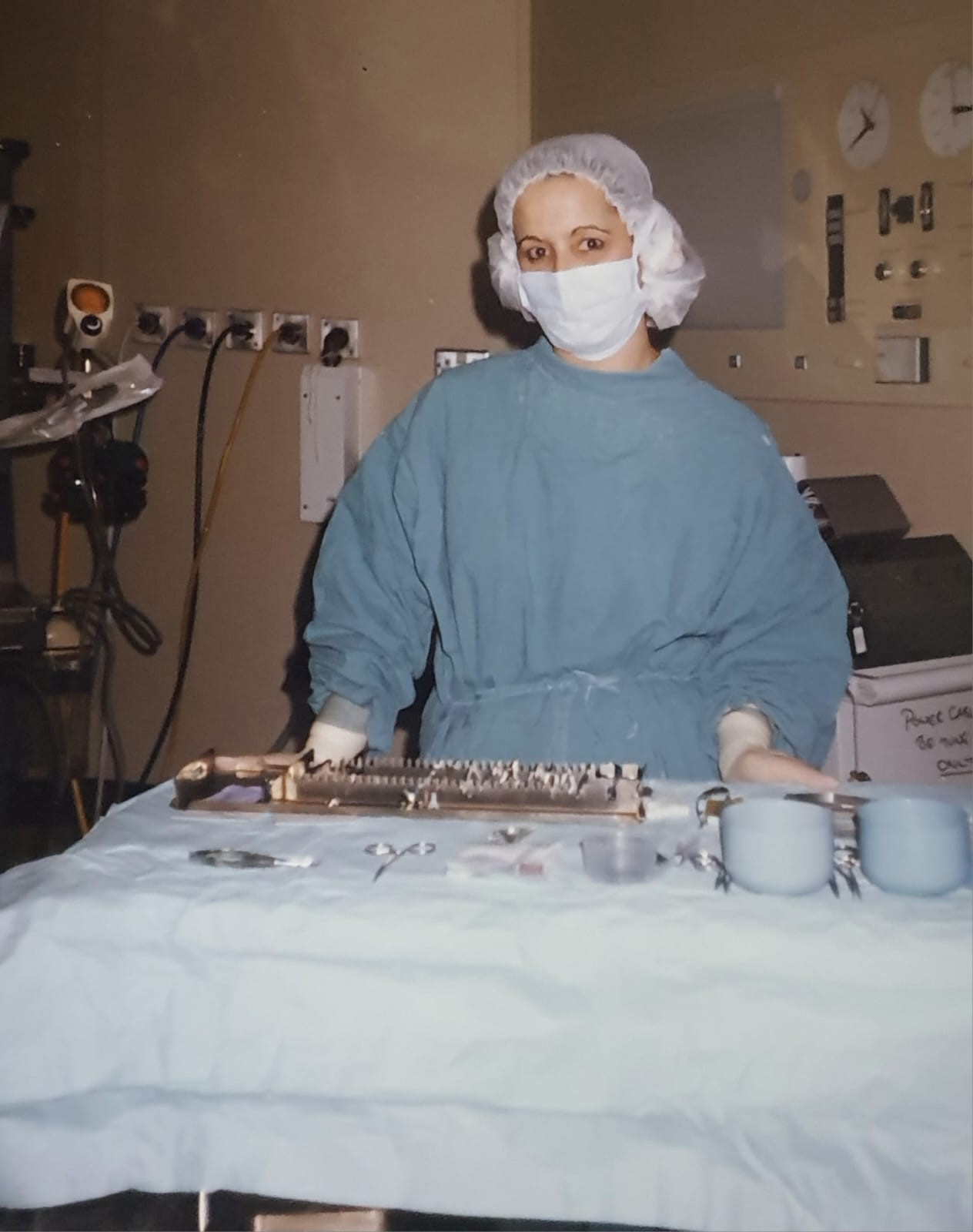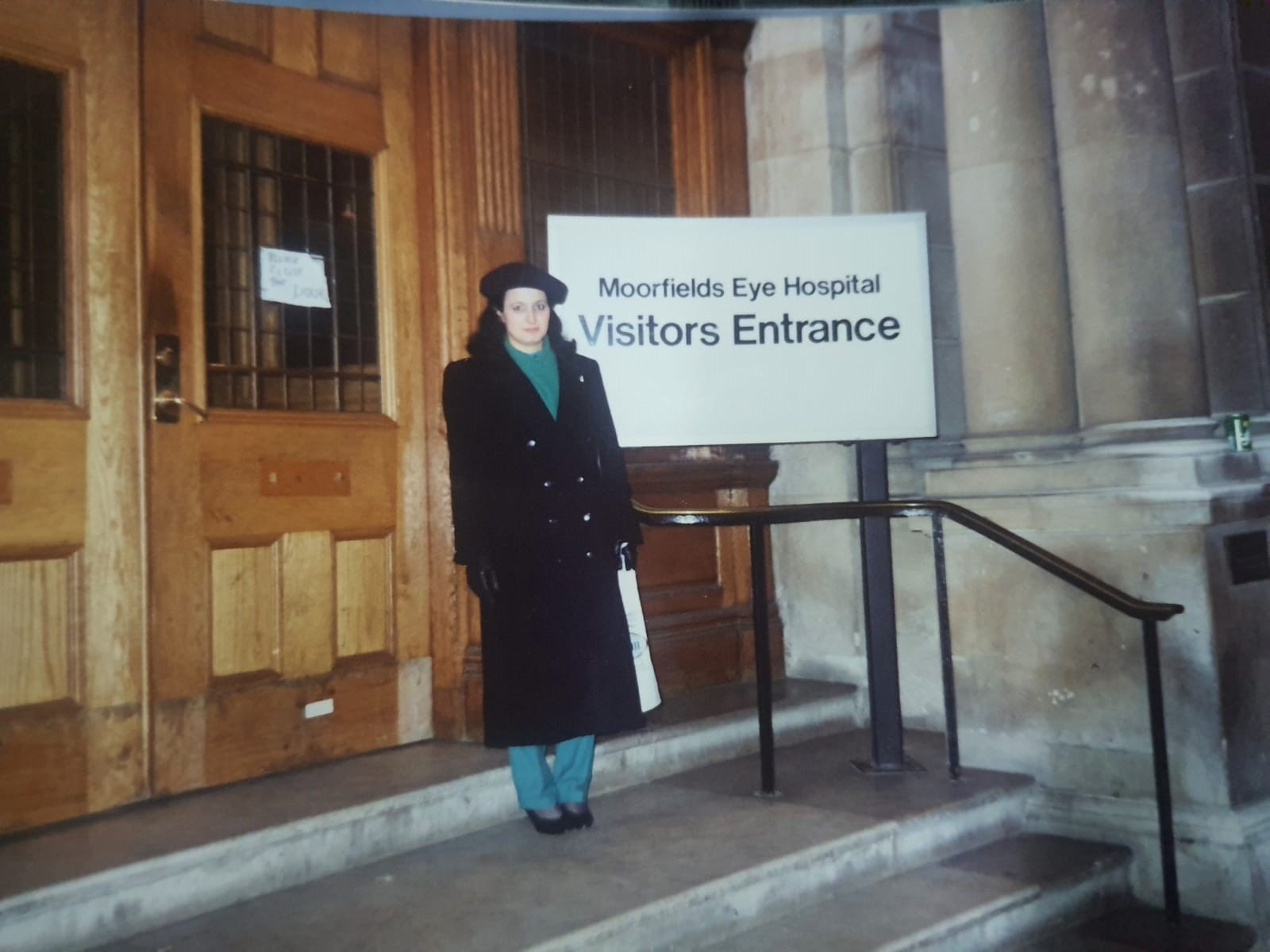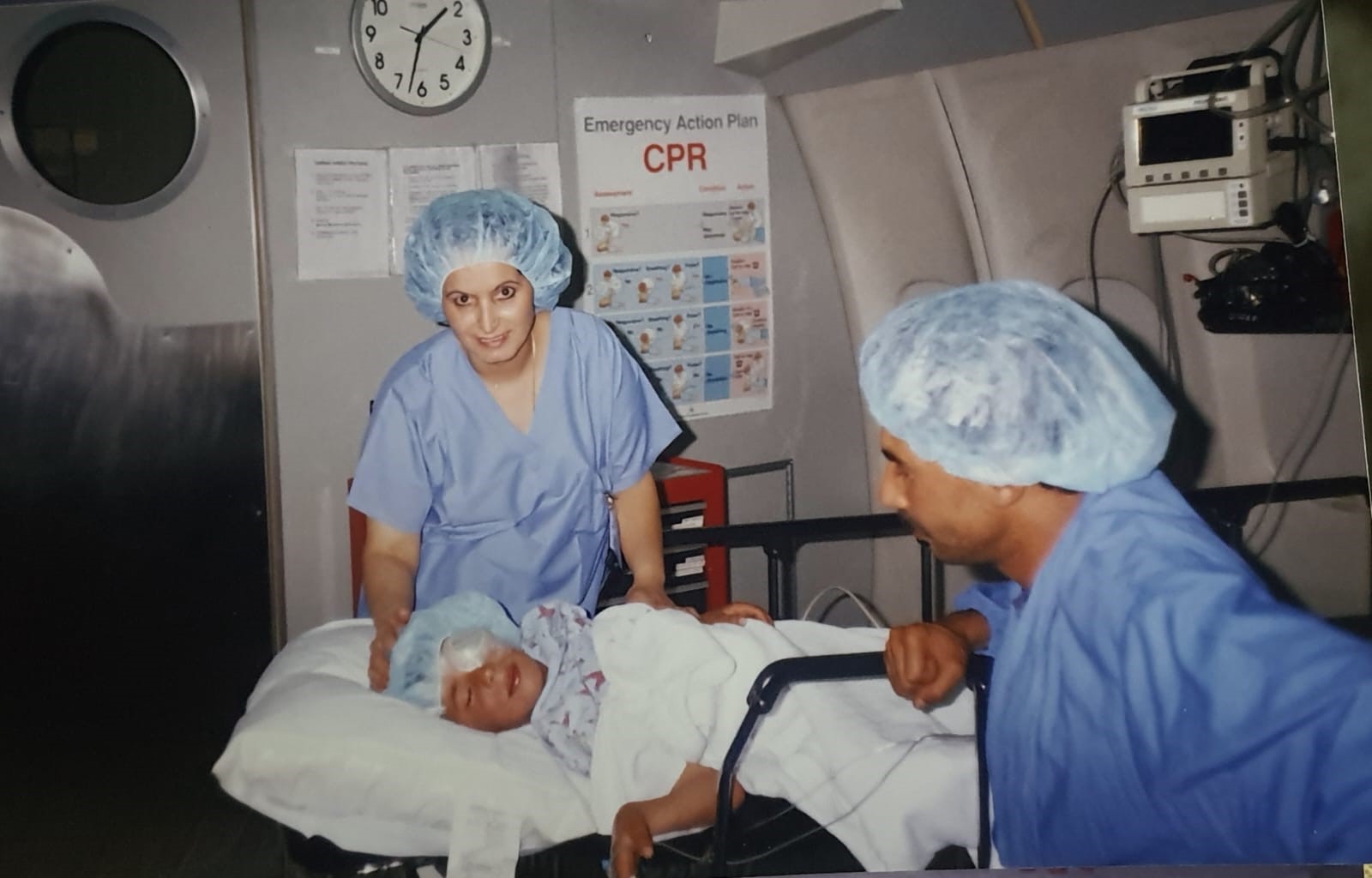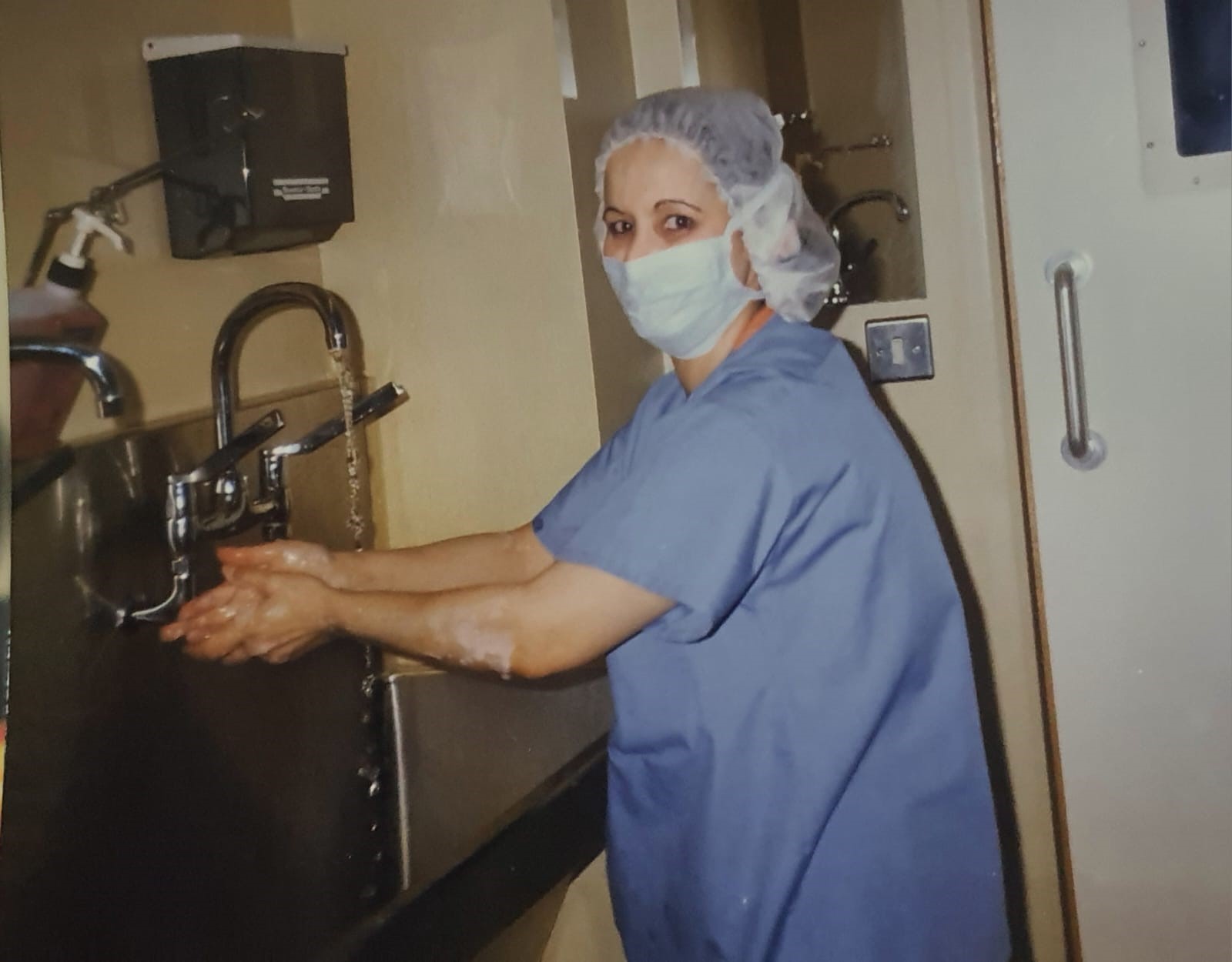Mrs Nifouth Al-Bahar didn’t simply start a job when she entered nursing; she pursued a purpose. With a strong desire to heal others and make a genuine difference in patients’ lives, she didn’t just join the field of nursing; she helped redefine it.
A graduate of Princess Mona College of Nursing Nifouth joined Jordan’s Royal Medical Services determined to make a difference in the lives of patients and the future of healthcare in her country. That determination would eventually position her as one of Jordan's most respected and pioneering ophthalmic nurses.

From the start, Nifouth was drawn to the world of eye surgery. The precision and transformation it could bring to someone’s life. Her skills earned her a place in a historic moment—she became one of the first female military ophthalmic nurses to assist in Jordan’s first-ever corneal graft surgery. “It was a big step forward in ophthalmology here,” she says. “I worked alongside the top doctors in the country on important surgeries, and people began seeing me as one of the leading experts in this field.”
Her passion for achieving high standards continued to grow. Nifouth received training in advanced skills, including retinal detachment and vitrectomy surgery, at Moorfields Eye Hospital in London, a respected institution. She later introduced these pioneering surgeries to the Royal Medical Services in Jordan, making these treatments available there for the first time.

Her career spanned both the military and private sectors over the years. While serving as Director of operating rooms, she focused on supporting and guiding others. "I shared the key details nurses needed to improve, and I always made sure to acknowledge their efforts—this boosted their self-esteem and helped them excel," she explained.
"An ophthalmic nurse does much more than assist in surgery," she explains. "We help patients prepare, support them as they heal, and teach them how to take care of themselves after treatment."
She has aimed to raise awareness about eye health in the community. "People must learn ways to protect their eyes at work, for instance, like wearing safety eyeglasses while farming, and why sticking to treatment plans matters," she shares. "We also need to spread more knowledge about the importance of cornea donations."

Although she has achieved a great deal, she acknowledges that people in Jordan continue to struggle to access eye care. The high cost of eye care services, travel difficulties, and the sheer number of patients in cities make it challenging to access proper care.
Care delivery also depends on cultural norms and values. She explains, "Many women in my community prefer being treated by a female nurse." She emphasizes the importance of encouraging women to enter this field. Her path wasn’t easy. "At first, being a woman in health care was hard. But through learning, training, and growing my confidence, I earned respect in my role," she shares.

She motivates young women in nursing to consider careers in ophthalmology. “Be patient. Focus on accuracy. Trust yourself,” she says. “That’s the key to improving.”
Nifouth explains how the role of ophthalmic nurses has undergone significant changes over time.
“When I began, people saw nurses more like technicians. But now, with advancements in science and better education, nurses play a vital part in surgeries and caring for patients.”
However, more efforts are needed to help nurses in areas lacking resources. “We need better training opportunities, ongoing education, and true recognition of nurses’ contributions. That’s the way to improve eye care services for all.”
Mrs Nifouth Al-Bahar has spent more than forty years committed to eye care. She inspires future generations and has paved the way as a trailblazer. Her work continues to light the way ahead.
Ophthalmic nurses are registered nurses who provide specialized, holistic care to individuals with eye diseases, injuries, or vision impairment, applying advanced clinical, health education, and advocacy skills.
This story was developed by Prof. Yazan Gammoh, Al-Ahliyya Amman University in collaboration with the WHO Vision and Eye Care Programme.
Photo credits: Personal archives of Mrs Nifouth Al-Bahar, Amman, Jordan.
